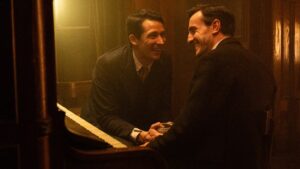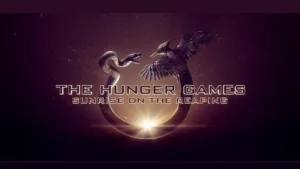During my senior year of college, I came out as bisexual. A rather tumultuous realization for me considering I thought I was biologically, inherently, and singularly drawn to men. I’d never seen women as more than platonic before. Until I did.
I explain this because I’d also spent the majority of my life reading about heterosexual relationships. It was what I knew, what I’d experienced, and, frankly, what I was comfortable with. However, when I realized that my place on the spectrum of sexuality was no longer as solidified as I’d thought, things changed. The stories and relationships I’d always read about suddenly felt out of reach. I was thrust back in the same limbo I’d been in while questioning my sexuality. And thus began another tightrope walk that, at some point, caused me to take an unintentional break from reading.
The break – which I didn’t even realize was a break until it was over – ended when I picked up This Is How You Lose the Time War by Amal El-Mohtar and Max Gladstone. Looking back, I wonder if it had been fate that caused my phone to die and my computer to be on the fritz that day in the Newark United terminal.
The importance
Before our flight, my mom and I sauntered over to a book stand where I bought This Is How To Lose the Time War and it wasn’t long until I was devouring the entire thing. I read cover to cover on that single plane ride and as cliché as it might sound, I haven’t been the same since.
This epic fantasy, sapphic romance was the first queer book that I felt connected to in such a primal way. Of course, when I was in the process of understanding my sexuality I did a lot of research. I consumed many sapphic stories in all possible genres. And while a lot of those books helped me understand that I didn’t have to exclusively like men or women and that there was a space for me outside the constraints of heterosexuality, I never felt entirely connected to anything I was reading. The words were beautiful, the stories were moving, and the characters were multifaceted, but for some reason, I was still reading and experiencing things at an arm’s length.
While reading This Is How To Lose the Time War I had just ended a very important female friendship. Rey, the friend in question, had been very close to me. She was someone I talked to daily, went out with often, and even played a sport with. Eventually, I realized that my connection to her went deeper than friendship and I had unintentionally fallen for her.
In the past, within my heterosexual relationships, physicality was at the heart of those bonds. Every relationship I’d ever experienced or read about was brought to its highest point once physicality was introduced. But with Rey, our connection was purely emotional and intellectual. We never got to that physical stage, but I’d cared for her as deeply as I had for others. When things were said and done, however, I was left more lost and confused than ever.
The quote
In This Is How To Lose the Time War the relationship between the two main characters, Blue and Red, resonated viscerally with me – ironically – because of the intellectual basis of their connection. Their love grew through every means except the physical, learning and unraveling one another from the inside out. It was a love so pure and so rich that it broke the bounds and constraints of time and space. It didn’t need physicality to be real or to be raw, it just was. That was the sort of female love I knew and had I’d experienced. For the first time in my life, I felt truly connected to a sapphic romance. For the first time in my life, I felt seen.
It all started with a quote. Originally, I’d underlined it because the structure was breakingly beautiful and left almost breathless. Now looking back, I think I also underlined it because I saw myself in Red (the character writing the quote). I felt more connected to that single sentence than I had any other I’d read prior.
“And this letter is a knife to my throat, if cutting’s what you want.”
At the point of this quote, eighty pages have spanned in which Red and Blue have sparked and continued a dangerous correspondence through magical letters across intergalactic dimensions and multiple time periods. Confessing one’s feelings, without assurance of reciprocation, is, in itself, weaponizable. In one single sentence, Red is able to expose the true nature of vulnerability, the brink of possible heartbreak or possible love. In this moment, Red gives her counterpart both the power to kill her in life and in love.
The conclusion
Back then, I couldn’t comprehend my connection to this quote. Why I’d cried while highlighting it or why I’d felt inclined to reread it another hundred time. Now, I understand it’s because I was Red.
I’d once laid my heart at my Blue’s feet, giving her the same exact power. I’d emotionally exposed myself in an unknown way with foreign feelings for the first time. And it could have ended me. And somehow, even in anguish, I’d do it all over again. Vulnerability was what gave me the strength to embrace my true self and showcase it to the rest of the world. And even if the epic love affair wasn’t what I achieved from doing so, sometimes all we can ask for from vulnerability is growth.
The entirety of This Is How You Lose The Time War has changed how I view sapphic romance in general. It’s also helped me better understand my relationship with and expectations for bisexuality. It’s not just a novel about forbidden love or galactic relations, it’s about the power of vulnerability.
I’d do anything to read this book for the first time again and I encourage every person to give it a chance. You never know what you might find inside.
Check out:
Netflix’s ‘Moxie’ (2021): A Study in the Female Experience
‘Sky Rojo’ (2021) Threads the Line Between Empowerment and Exploitatio
















Be First to Comment